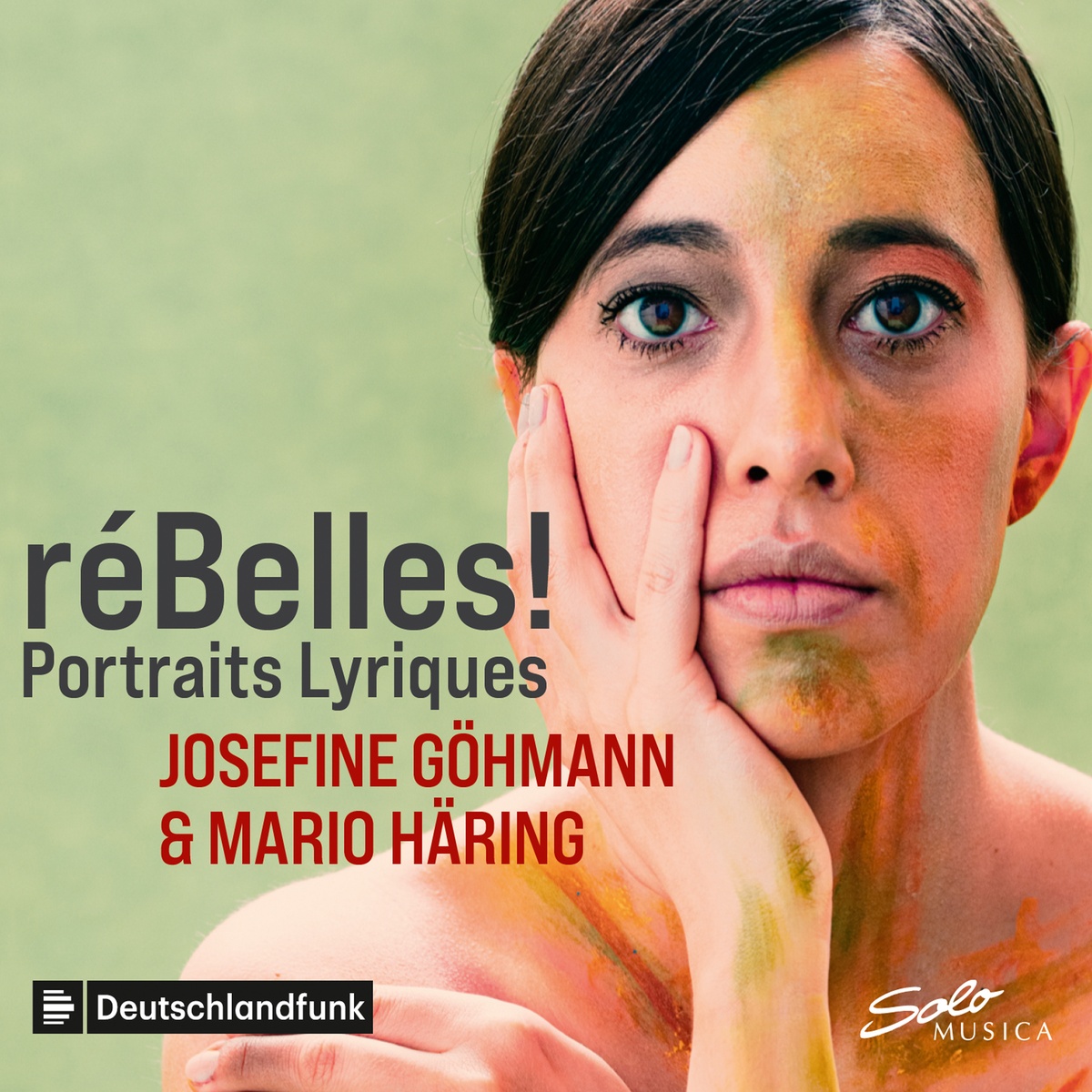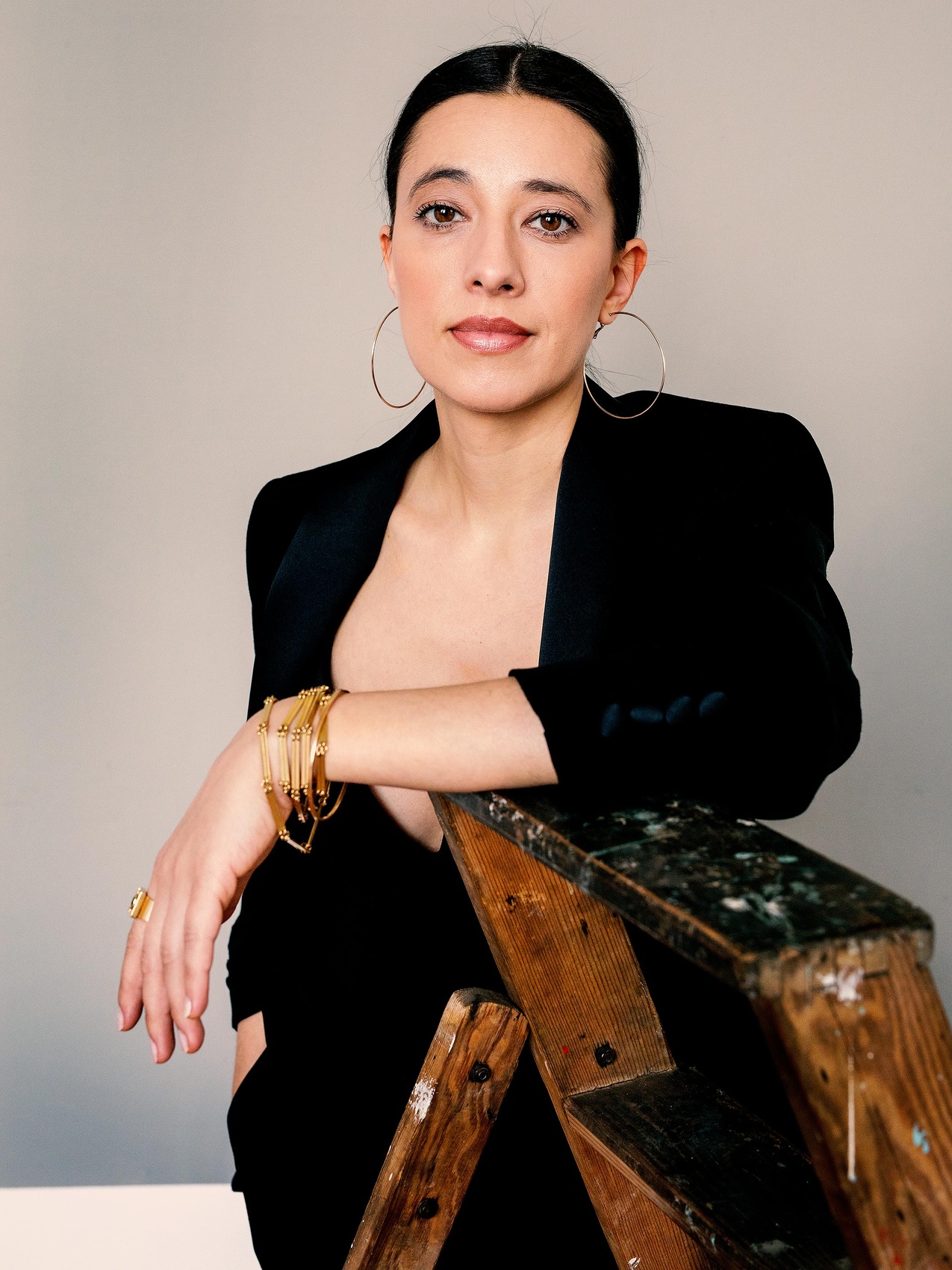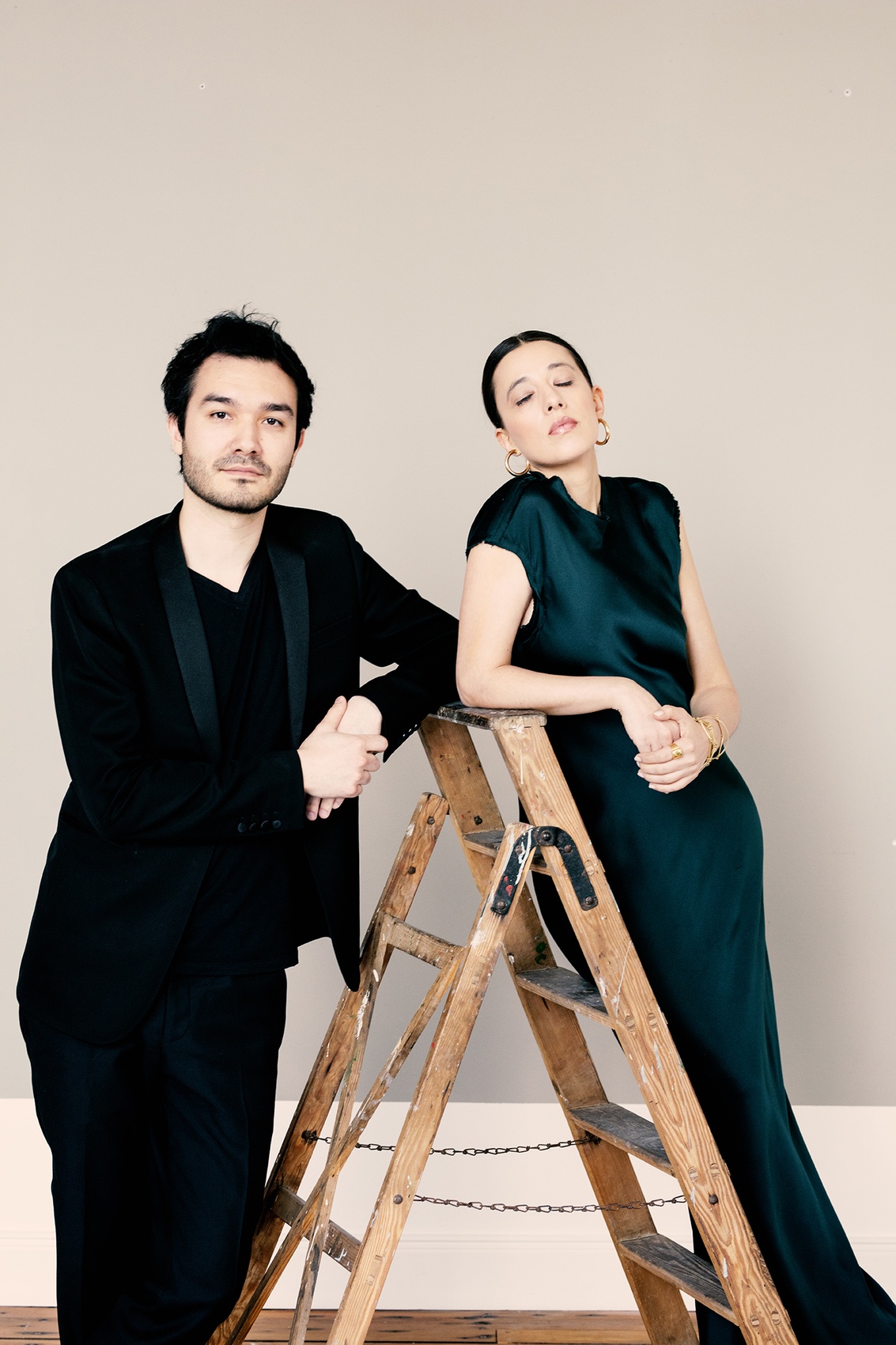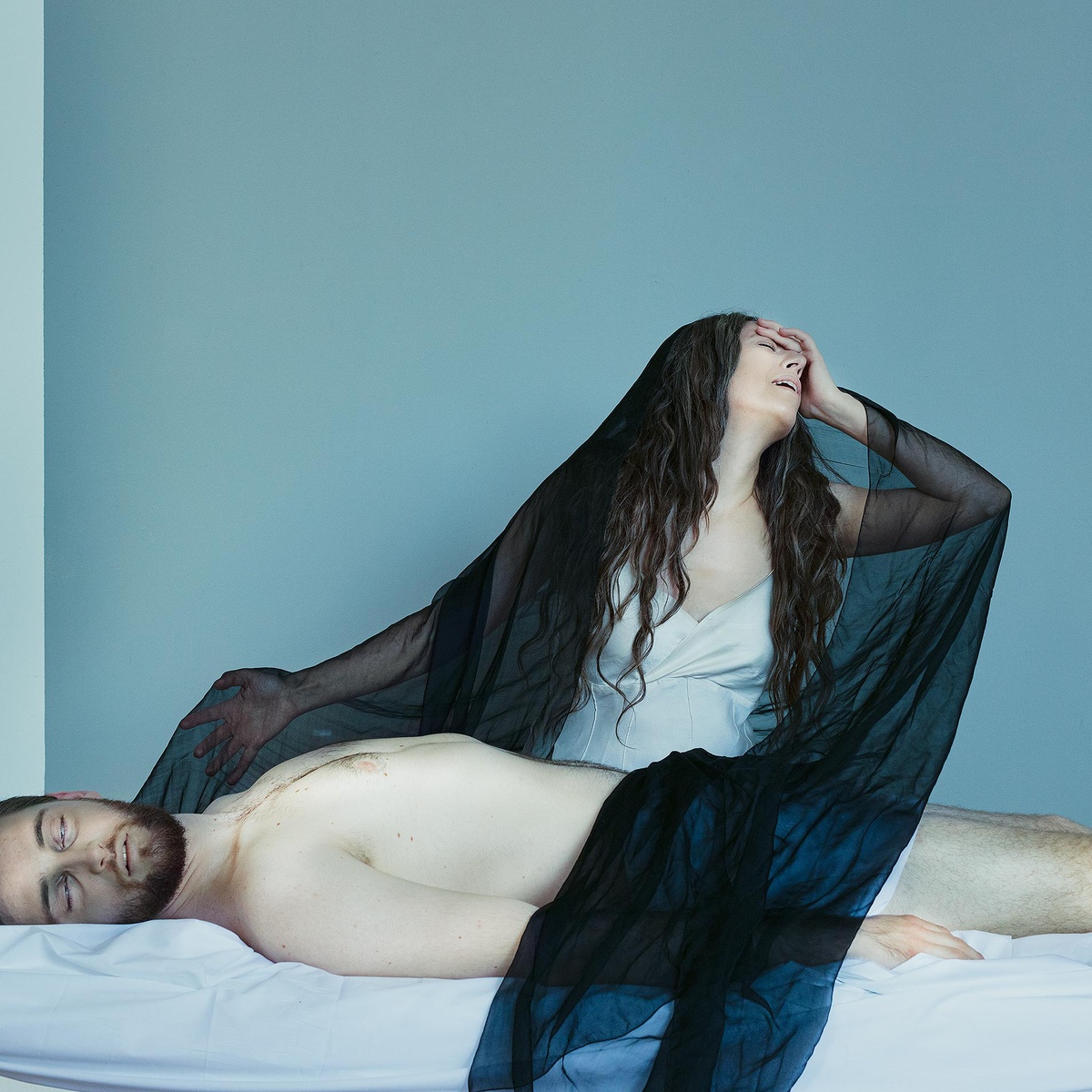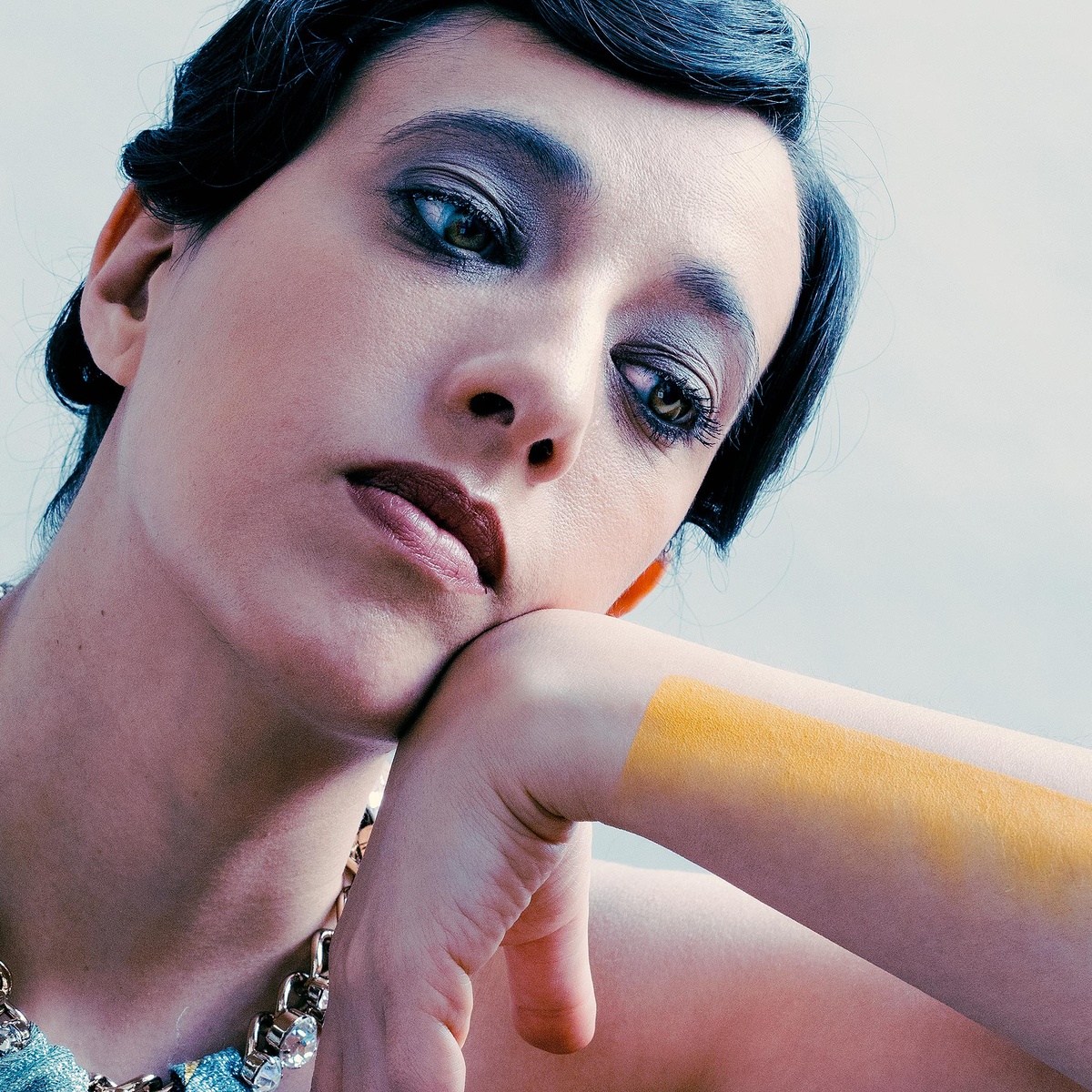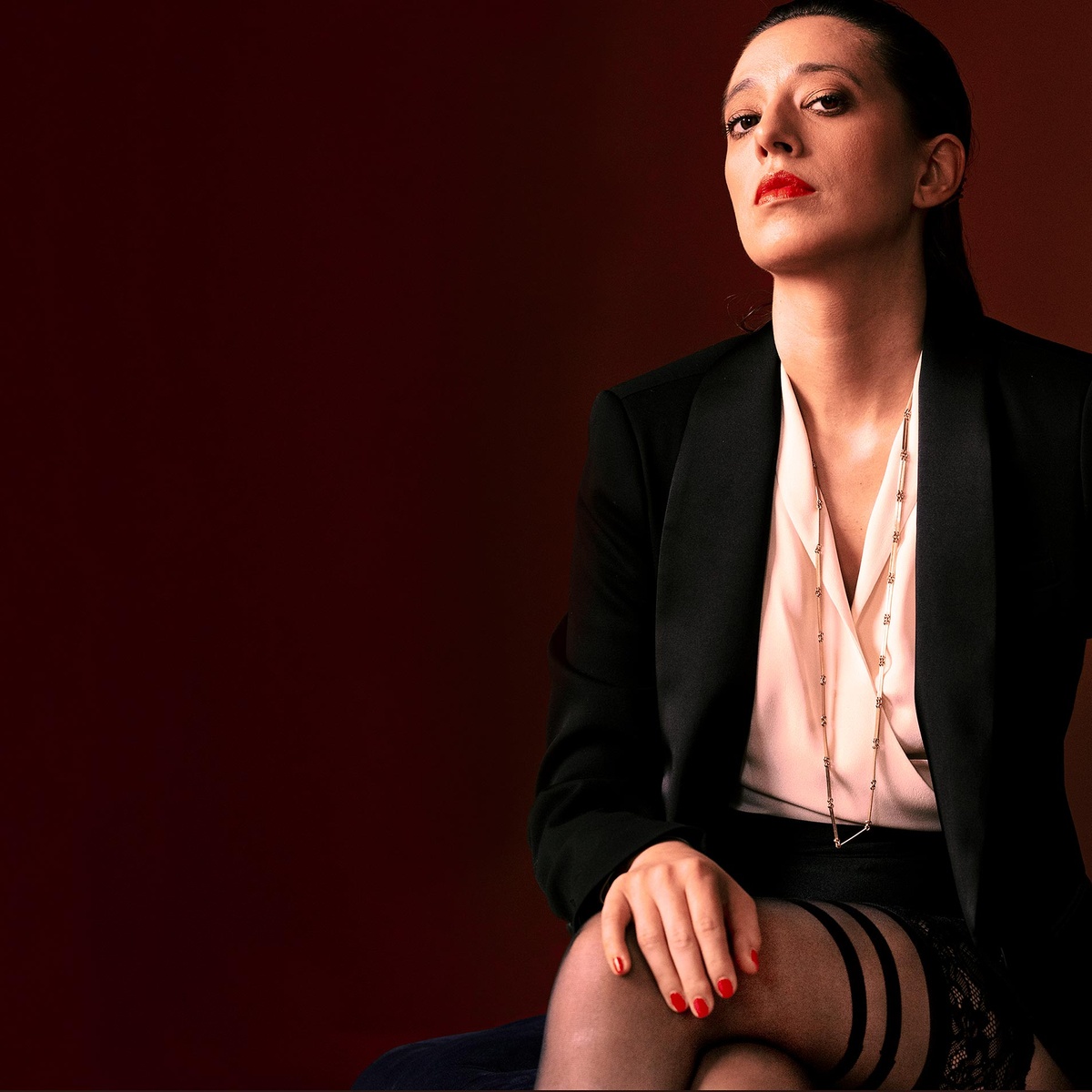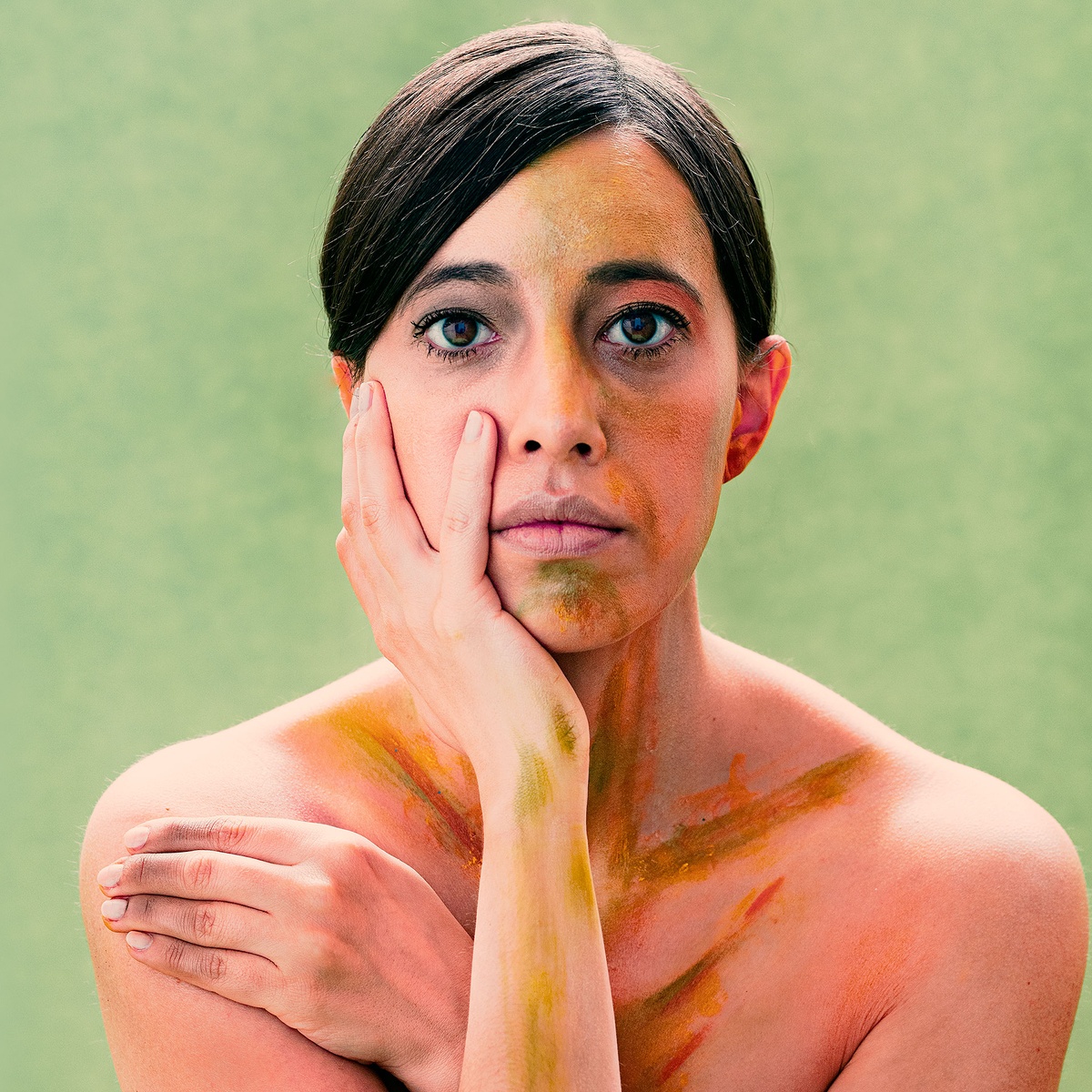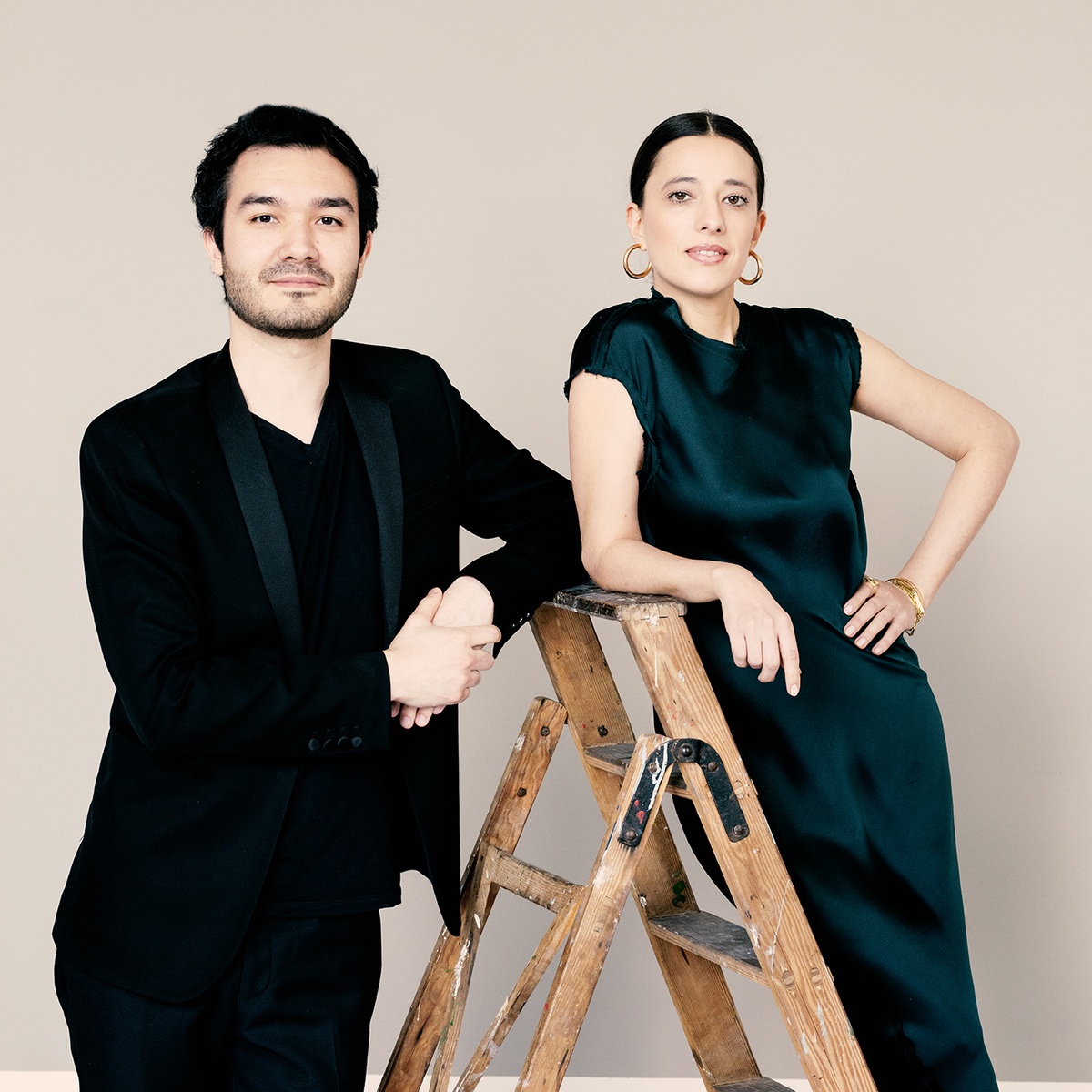rébelles
PORTRAITS LYRIQUES
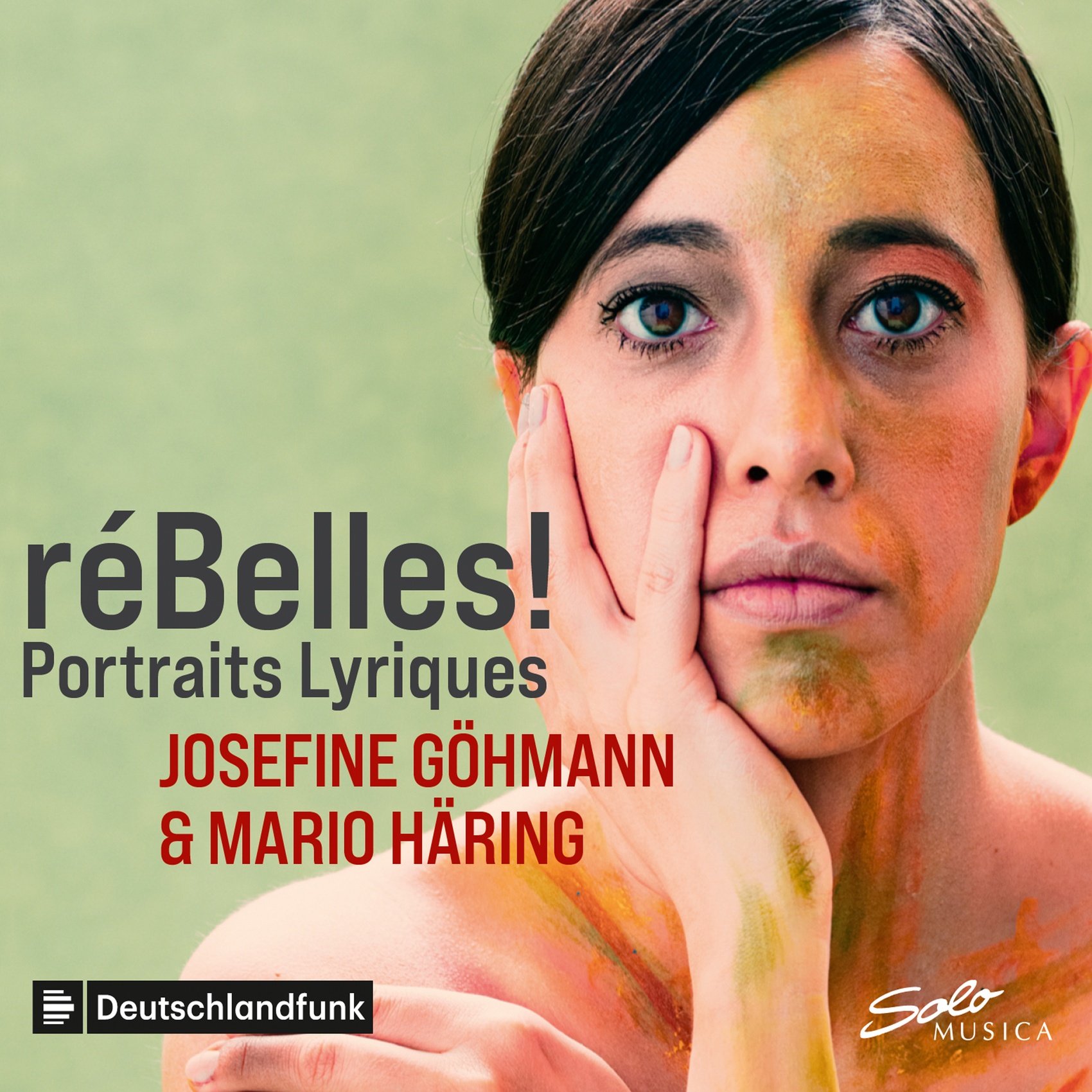
réBelles!
portraits lyriques
//CD
JOSEFINE GÖHMANN/soprano
MARIO HÄRING/pianist
Frauenbilder 1900-2020
Vierge / Sirène / Héroine / Ophélie
schoenberg/strauss/chausson/boulanger/
honegger/hindemith/weill/messiaen/rihm
premiere: reyes macahis/wagendristel/yoshida
New imagery. New roles. New art.
In addition to Salome, Lulu, Elektra, Marietta and Mélisande in the opera, more and more women are portrayed in the song of the 20th century with a bold brushstroke that reveals a crack. This new brushstroke stands for everything that the modern revolt has changed with industrialization, mechanization, secularization, democratization, psychologization, individualization:
Who do I want to be? What am I allowed to be? What should I be? What does the path to and in self-determination look like?
At the beginning of the 20th century, Emilie Flöge in Vienna and Madame Lanvin in Paris threw away the corset, and women fought for the right to vote at the sacrifice of blood, freedom and reputation. Art experiments, creates, reacts, revolts with Dada, Cubism, Expressionism:
"Contradiction", rebellion, sensuality, violence, disruption come to the screen, and become music. Become art and new beauty. New images emerge. Other images emerge. The previous perfection, the previous order and the previous rules no longer exist.
Composers such as Richard Strauss, Ernest Chausson, Arnold Schönberg, Lili Boulanger, Arthur Honegger, Paul Hindemith, Kurt Weill, Olivier Messiaen, Wolfgang Rihm, as well as Alexander Wagendristel, Feliz Anne Reyes Macahis and Aya Yoshida all paint images of these new women from 1900 to 2020 . Not only on the opera stage, but also in song.
++ Download CD-Booklet PDF
++ Link Musik-Panorama // Deutschlandfunk
++ Link "Wortspiel" // Deutschlandfunk
"réBelles!" are as different as they are related:
They cover the Virgin Mary, Maria Magdalena, with Judith:
Vierge. virtue and testament.
The mermaid, a drunken dancer, dreams:
Sirène. fairy tales and dreams.
From Nanna, Saint Joan of the Slaughterhouses, from the Inca Maiden Piroutcha:
Héroïne. street and utopia.
And again and again:
Ophélia. rebellion and immortality.
An enigma that unites everything and everyone:
Youth, femininity, innocence, a pure heart, sincere love, longing, the pain of loss and denial, rebellion and turning away from everyone.
Alone. With conviction.
Making the choice, the decision:
„Liberty of choice“.
Ophelia paid with her life. - Do we have to pay with our lives today? Can't we stand up, talk, be whoever we want? A life of one's own, one's own decision, whether mother, whether work, whether nice, whether determined, whether religious, whether secular, whether sensual, whether quiet, whether protesting, whether silent, whether beautiful, whether "against":
We have one voice. It is our face. In sound. And It is ours. Let's use it!
réBELLES!
//
NOMINEE
"International Classical Music Awards" - ICMA 2023
Category "vocal music"
//
Inspiration/References:
Cover/Ophelia: Anita Rée, 1885-1933, Selbstbildnis (1930)
Vierge: Arnold Böcklin, 1827-1910, Trauer der Magdalena an der Leiche Christi, 1867
Sirène: Heinrich Vogeler, 1872-1942, Porträt einer Tänzerin, um 1918
Héroine: Christian Schad, 1894-1982, Lotte, 1927/28
Photography: Felix Broede
rébelles
Making of
JOSEFINE & MARIO at DLF/Köln
Due to Corona, instead of five consecutive days, only three recording days could take place on December 18, 19, 20, 2020, and the remaining recordings followed on May 21, 22, 2021 - including soprano a cappella first recordings.
The sound engineer Johann Günther was recording producer, editor and responsible for the mastering. On the radio side, Wolfgang Rixius, Christoph Rieseberg and Caroline Thon were in charge of the production as sound engineers.
The filmmaker Kiki Angerer was able to capture impressions of the sound recordings on film in May 2021 under repealed conditions in the pandemic.
The music journalist Jonas Zerweck worked for a time as an editor at Deutschlandfunk and oversaw the project on the radio’s side.
The project received support for its realization from the Walter and Charlotte Hamel Foundation, the Alfred Koerppen Foundation for New Music, through NEUSTART KULTUR and crowdfunding on the Startnext platform. - In order to make "réBelles! portraits lyriques" visible and tangible for crowdfunding, we were allowed to enter the hallowed halls of the Spengelmuseum in Hanover during the spring lockdown of 2021 and were able to shoot in front of the real "Lotte" by Christian Schad.
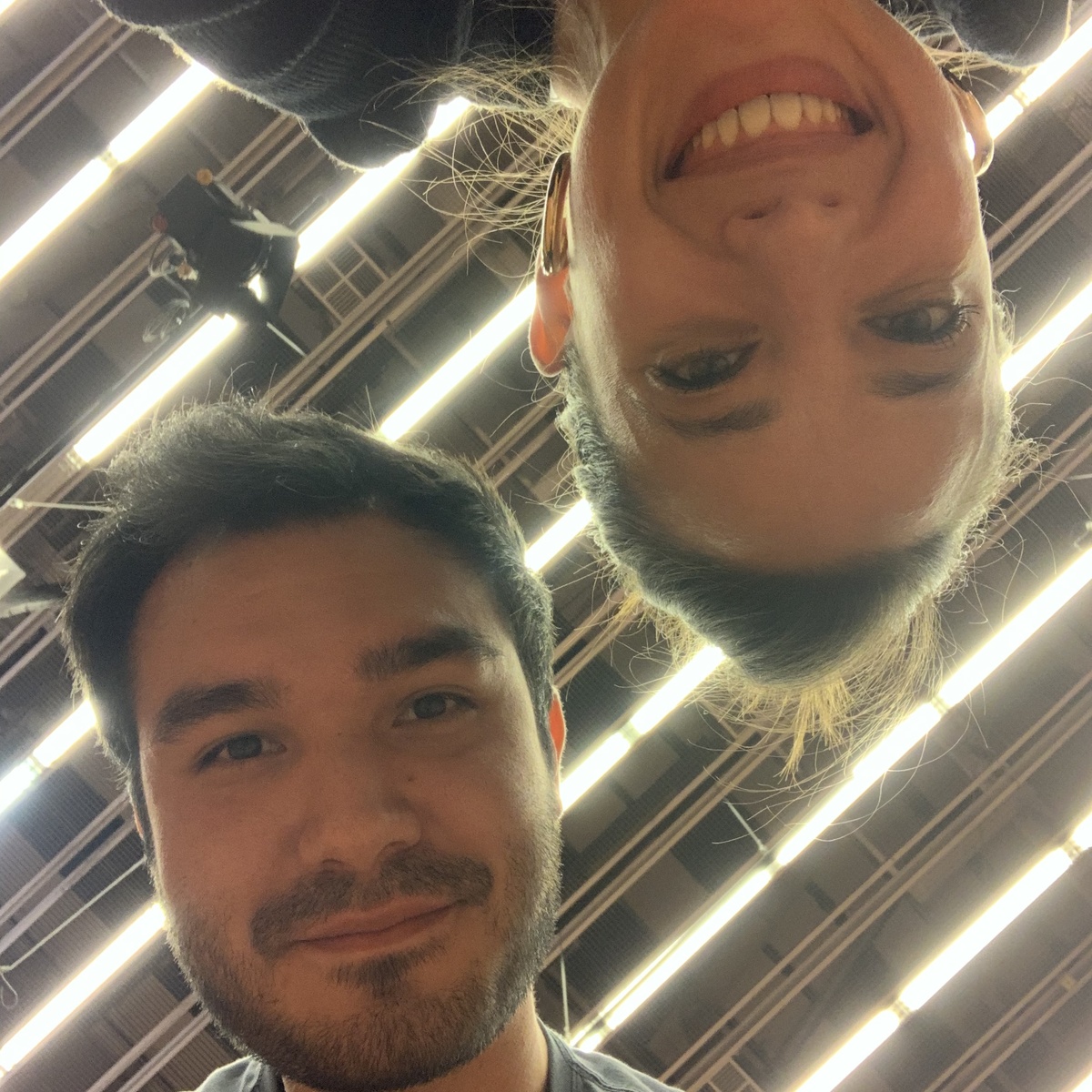
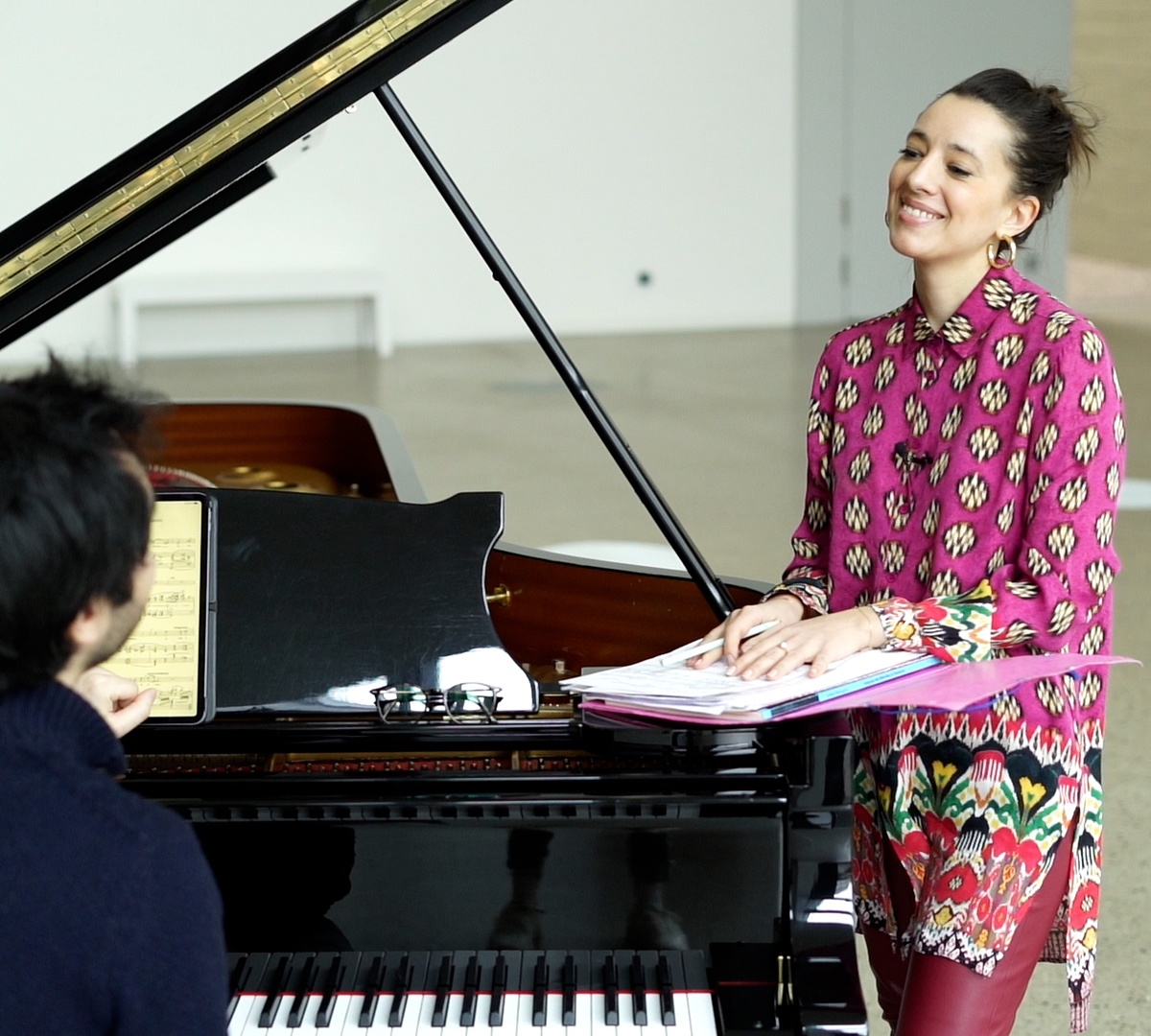
réBelles! goes CD//Booklet//EPK
When the recording was "in the bag", the pictures for the CD production had to be created:
We were able to persuade the photographer Felix Broede to get involved with the idea of "portraits lyriques" in it’s relationship to painting... The Camaro Foundation with studio-rooms in Potsdamer Straße Berlin, in which painters like Max Beckmann and young female painters are said to have created a hundred years ago, opened the gates for us and we were able to immerse ourselves in the paintings photographically. Supported by professional makeup and a hair artist from the Berlin film scene. Also present here: Kiki Angerer as filmmaker and creator of our "EPK"-/making-of-video, in which we describe the idea, creation and intention of the program with quotes. - In addition to all this development of image material, I, Josefine, then wrote the texts for the booklet and entered into dialogue with my label, Solo Musica, and the boss, Hubert Haas, as well as his graphic designer, about how we can achieve the vision "réBelles!" as a booklet. In April 2022 the time had finally come! The CD was launched digitally and physically worldwide: Shortly before, on March 28th, 2022, the full length of the program was broadcast by our co-producer DeutschlandRadio/DLF in the program "Musik-Panorama" including an interview.
"réBelles! portraits lyriques" entered the German classic album charts at number 12 when it was released on April 8th, 2022.
We look forward to going further with "réBelles!" !
And we hope to win the ears, hearts and minds of a large audience.
Your Lied Duo Josefine Göhmann & Mario Häring
rébelles
Reviews
réBELLES! portraits lyriques
Frauenbilder 1900-2020 // CD Produktion // Lied Album
Josefine Göhmann/Sopran & Mario Häring/Klavier//
DeutschlandRadio/Deutschlandfunk DLF & Solo Musica (2022)
++Link-réBelles-Pressespiegel++
DLF/MUSIK-PANORAMA
Vorstellung der Koproduktion "réBelles!" im Deutschlandfunk
Aufnahme in voller Länge und Inteview mit Josefine Göhmann
Moderation: Jonas Zerweck
28.03.2022
FRANCE MUSIQUE/Le Disque classique du jour
"Cet album est une offre esthétique pour le discours sur la féminité, sur être une femme aujourd'hui et pour cent ans. De plus, les sentiments très personnels de l'artiste jouent un rôle dans lequel les pièces sont combinées de quelle manière. Josefine Göhmann a voulu se pencher non seulement sur les textes, les œuvres et les interprétations de femmes, mais sur notre patrimoine culturel."
Rodolphe Bruneau-Boulmier, Emilie Munera
10 mai 2022
DAS OPERNGLAS
"Josefine Göhmann hat einen höchst flexiblen, wundervoll runden und kräftigen Sopran, der sie auch zu enormer Wortakrobatik in „La Vierge de Cluny, Chant d'une Femme" von Feliz Anne Reyes Macahis befähigt. Interessant ist die Gegenüberstellung der Ophelia Lieder von Richard Strauss und Wolfgang Rihm. Dank ihrer Vielseitigkeit zeigt sie sich allen auf diesem Album vertretenen Stilrichtungen gewachsen und wird dabei von Mario Häring am Klavier einfühlsam begleitet.“
J. Gahre
Juni/2022
ORF/Ö1, ZEIT-TON-MAGAZIN
Feature, Interview und Sendung aller Ersteinspielungen von "réBelles! portraits lyriques" (La Vierge de Cluny/Reyes Macahis, Die Schaukel/Wagendristel, Réquiem para un niño/Yoshida).
Vorstellung des Projektes, "von ihrer ausgesprochen klugen, durchdachten und ansprechenden neuen CD...", "bestens recherchierten und mit großer Hinwendung aufgemachten Neu-Erscheinung", "Initiatorin dieses beeindruckenden Projekts: Josefine Göhmann, ...", "Ein abwechslungsreiches Wandern durch Stile, Ansichten und Sprachklänge, sinnstiftend miteinander in Bezug gesetzt."
Redaktion und Moderation: Marie-Therese Rudolph
06.04.2022
CLASSIQUE C´EST COOL
"Il a suffi de quelques plages pour être pleinement convaincu de l’intérêt artistique du projet. (...) Josefine Göhmann signe avec cet album, un disque-portrait qui la place dans la catégorie des récitalistes à suivre et que l’on attend maintenant sur scène pour confirmer cet essai réussi."
Hugues Rameau-Crays
PREMIÈRE LOGE OPÉRA
"… Elle fait ici entendre une voix richement timbrée sur l’ensemble de la tessiture, et manifeste par ailleurs une vraie sensibilité, une belle versatilité stylistique, … "
Stéphane Lelièvre
DIAPASON
"… Mais la singularité intellectuelle du programme force le respect, comme sa réalisation : un timbre et un chant clairs et nets, à l'élégance déliée, un piano complice et atmosphérique, tous deux magnifiés par la prise de son. Avec La Vierge de Cluny, on découvre Feliz Anne Reyes Macahis (née en 1987); a cappella, la voix alterne avec souplesse phonèmes, effets de souffle, phrasés lyriques et bribes de texte. Aya Yoshida (née en 1971) [A. Yoshida, *1991. Signed: J. Göhmann] referme l'album avec son Réquiem para un niño, autre pièce a cappella, travaillant le timbre jusqu'à sa disparition. (…) Au fil d'une écoute qui s'indifférencie dans le cristal de la voix et d'un programme kaleidoscope qui nivelle paradoxalement les styles, soprano et piano évoquent alors le Joueur de flûte qui vous entraîne à l'aveugle. (…)"
Chantal Cazaux
OPERA ONLINE
„Ce mois-ci est paru chez Solo Musica le premier disque de la soprano germano-chilienne Josefine Göhmann, encore très – trop – peu connue et entendue en France. Accompagnée ici au piano par Mario Häring, elle livre un programme cohérent et « dessine un kaléidoscope d’images féminines de 1900 à 2020 » qui porte le nom de réBelles ! Portraits Lyriques.(…)
Ici, Josefine Göhmann propose un travail qui s’assimile à celui d’une artiste peintre, en façonnant un programme aux airs de galerie de portraits.(…)
L’auditeur est ainsi invité à admirer ces portraits, mais aussi à les mettre en lien les uns avec les autres, admirant les éclairages et jeux de lumières que chaque compositeur, tel un peintre, a insufflé à son œuvre, avec ses coups de pinceau plus ou moins marqués. (…)
Josefine Göhmann offre en effet une très belle diction, d’une grande clarté en allemand, légèrement moins en français mais cela reste plus qu’appréciable et l’on peut se passer du livret. La ligne de chant est claire et parfaitement dirigée, sans aucune cassure, ce qui permet un timbre riche, à l’aise dans l’ensemble de la tessiture. On notera également que la soprano parvient à transmettre une véritable interprétation à travers seulement sa voix, ce qui n’est malheureusement pas toujours le cas lors d’une captation au disque. L’investissement de l’artiste transpire à travers chaque plage, chaque air, et l’on respire finalement avec elle par ce même souffle qu’elle offre aux portraits présentés. Quant à l’accompagnement au piano de Mario Häring, il se révèle tellement complice de la voix que l’on en viendrait presque à ne plus le distinguer : la fusion des deux instruments est telle que, sans jamais s’effacer l’un l’autre, ils semblent ne faire plus qu’un. Nous sommes ici au-delà d’un piano portant une voix, pour atteindre un équilibre parfait.
Avec ce premier disque, Josefine Göhmann parvient à proposer un ambitieux projet, original et bien construit, que l’on peut apprécier sans forcément être particulièrement adepte du répertoire défendu ici.“
Elodie Martinez
OPERNWELT
"Mutige Rebellin
Josefine Göhmann (Sopran) und Mario Häring (Klavier) mit einem farbenreichen wie abenteuerlichen Ritt, hinaus ins «Meer der Weiblichkeit»
Ein Wortspiel mit dem französischen Ausdruck für «Rebellin» findet sich auf dem Cover eines neuen Albums der Sopranistin Josefine Göhmann und des Pianisten Mario Häring: «réBelles!». Göhmann kommentiert: «Sich in dieser Welt selbst zu finden und zu definieren, ist unglaublich komplex geworden. Für uns Frauen ist es sehr schwierig, obwohl wir mehr als 100 Jahre Frauenrechtsbewegung haben und obwohl wir im Grundgesetz gleichberechtigt sind. Mich interessiert, warum das so schwer ist oder – drastisch gesagt, welcher Diktatur des Geistes wir folgen. Vielleicht der Idee, dass jede und jeder von uns perfekt sein will. Es gibt so viele Standards, wie man sein sollte: besonders reich, besonders schön, besonders erfolgreich oder sexy.»
Den kulturhistorischen Standards weiblicher Inbilder widmen sich Göhmann und Häring, indem sie entsprechende Themenfelder wie «Jungfräulichkeit», «Meerjungfrauen», «Heldinnen» sowie den Ophelia-Stoff musikalisch-programmatisch aufs Tableau heben. Dafür hat die Sopranistin sogar zwei Komponistinnen und einen Komponisten beauftragt, entlang der Sujet-Linien Neues zu (Noten-)Papier zu bringen. Feliz Anne Reyes Macahis (*1987) von den Philippinen vertont eine Variante der lauretanischen Litanei, und zwar: a cappella. Mutig! Ganz zu Beginn des Albums hören wir ausschließlich die Stimme von Josefine Göhmann. Der Fokus auf die Weiblichkeit; offen (aus)geliefert. Man erfährt nicht genau, was sie singt, aber sie leidet, windet sich, atmet, fleht und kommentiert sich dabei anscheinend selbst. Dann färbt sie die Stimme dunkel, zeigt ihre erstaunlich vielfältige sängerische Farbpalette. Hätten doch junge Musikerinnen und Musiker häufiger den gleichen Mut, Programme, Konzerte, Alben so zu beginnen!
In Arnold Schönbergs 1899 entstandenem «Jesus bettelt (Schenk mir deinen goldenen Kamm)» erweist sich Göhmanns Begleiter Mario Häring als angenehm unsentimentaler Pianist, der hier nicht in eine Haltung des Kunstlied-Pathos-Wundstarrkrampfs verfällt, sondern das Stück zunächst fast volksliedhaft natürlich angeht. Göhmanns Stimme passt wunderbar zu dieser (vergessenen) Vokal-Literatur; zwischen Glockigkeit und verschatteter Tiefe findet sie vor allem in der ganz kreatürlichen, niemals aufgesetzten Diktion ihre Mitte. Paul Hindemiths «Die trunkene Tänzerin op. 18 Nr. 1» (nach Curt Bock) wirkt kein bisschen hölzern (was man den Werken dieses Komponisten, meistens zu Unrecht, unterstellte). Das gluckert, perlt, zappelt; aber bacchantisch, lukullisch. Ohne staubige Trockenheit.
Singt Göhmann schließlich französisches Repertoire (etwa in Ernest Chaussons «Chanson d’Ophélie»), klingt ihre Aussprache ebenso natürlich fein wie ausgewogen und kompetent. Kein Wunder, war die Sopranistin doch 2016 bis 2018 Mitglied der Nachwuchsschmiede an der Opéra National de Lyon. Besonders stark gelingen ihr und Häring jedoch die «Drei Lieder der Ophelia op. 67» von Richard Strauss (nach Shakespeare). «Wie erkenn ich mein Treulieb vor andern nun? An dem Muschelhut und Stab und den Sandalschuhn.» Derart betulich-betörend übersetzte Karl Simrock die Shakespeare-Original-Zeilen: «How should I your true love know from another one? By his cockle hat and staff, and his sandal shoon.» Das würde man heute nicht mehr so machen. Doch erstens entzieht Strauss mit seiner Musik jeder potenziellen Betulichkeit der Übersetzung den Zahn, indem er dem Klavier so moderne Klänge wie selten übereignet. Das klingt mehr nach Hindemith als Hindemith selbst nach Hindemith! Zweitens überwältigt uns Josefine Göhmann mit einer herrlichen Leichtigkeit bei gleichzeitiger Emotionalität so sehr, dass man tatsächlich gar nicht mehr über «Weiblichkeit» als «ein» Thema sprechen, sondern sich selbst mittels Hör-Lektüre dieser Platte in Sphären äußerst ausdifferenzierter Spielarten des Sujets (erotisch, intellektuell, menschlich, weise) hineinbegeben möchte. Großes Kompliment!"
Arno Lücker
Juli 2022
OPUS-HAUTE-DÉFINITION
"...Avec le soutien du pianiste Mario Häring, dont l’engagement musical est à saluer, Josefine Göhmann est l’incarnation même de toutes ces figures, et sa voix, au timbre envoutant, déploie des trésors de nuances pour chaque portrait abordé. Bref, un enregistrement tout simplement fascinant."
Jean-Jacques Millo
PIZZICATO
"...Die CD beginnt mit dem Auftragswerk ‘La Vierge de Cluny. Chant d´une femme’ für Solostimme von der philippinischen Komponistin Feliz Anne Reyes Macahis (*1987), das Josefine Göhmann leidenschaftlich involviert vorträgt.
Auch in den anderen Liedern des mehrheitlich französisch-deutschen Programms ist die Sängerin eine überzeugende Interpretin. Sie singt mit großer Sensibilität, enthüllt den dramatischen Inhalt der Lieder, ihre Emotionen, nimmt uns mit in Regionen, in denen alles Rationale kein Recht mehr hat. Josefine Göhmann, und ich glaube, das ist ihr Hauptverdienst, lässt den Hörer nicht gleichgültig.
Am Klavier wird sie engagiert und unterstützend von dem inspirierten Mario Häring begleitet."
Remy Franck
DIGITAL IN BERLIN
Interview//Portrait
FEUILLETÖNE
"... Wenn zeitgenössisches Lied, zeitgenössischer Gesang, dann von Josefine Göhmann"
Frau Eichler & Herr Martinsen
ComposHer
"Enfin un album qui mêle intelligemment des mélodies portant sur des femmes, écrites pour des femmes ou composées par des femmes sans tomber dans le cliché ! (…) le piano de Mario Häring, qui fait preuve d’une retenue empreinte de modestie, laisse la voix s’épanouir dans des aigus amples, et dans des médiums délicats et souples. (…) Josefine Göhmann est particulièrement à l’aise dans ce jeu de rôles permanent, comme dans le reste de cet album d’une admirable audace."
Clara Leonardi
